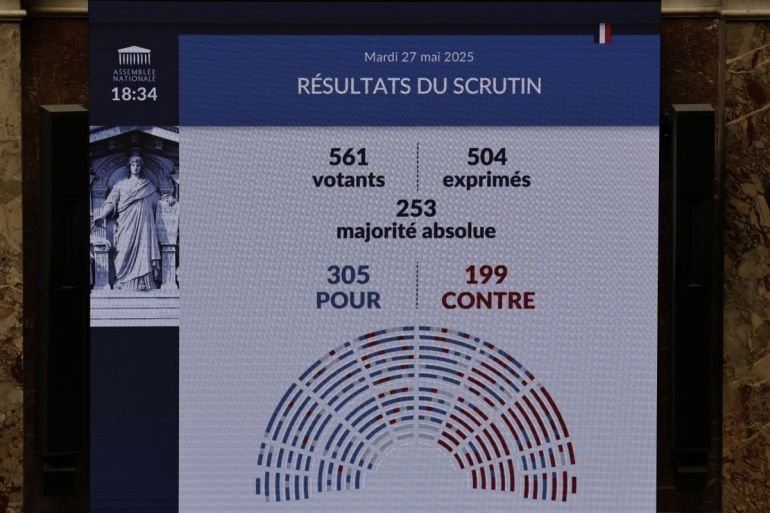Legislation set to progress as a striking 90% of the French populace supports the right to die for those with terminal illnesses.
The lower house of France’s parliament, known as the National Assembly, has taken a significant first step towards the enactment of a right-to-die bill. The proposal received approval in a preliminary vote, marking the beginning of what may be a protracted legislative journey.
On Tuesday, 305 assembly members voted in favor of the legislation, while 199 voted against it. This bill aims to provide medical assistance for patients to end their lives under specific circumstances.
President Emmanuel Macron has expressed his support for the bill, although it has faced opposition from some conservative factions.
In a statement via X, Macron called the assembly’s vote “an important milestone” towards achieving a sense of fraternity. He stated, “The National Assembly’s vote concerning palliative care and assisted dying is a critical step. With respect for varying feelings and perspectives, the path I envisioned is gradually unfolding.”

Next, the legislation will advance to the French Senate for additional discussion. Given the complexities of France’s parliamentary system, it may take several months to schedule a final vote. Ultimately, the National Assembly holds the authoritative voice over the Senate’s decisions.
With over 90% of French citizens indicating their support for allowing terminally ill individuals the right to end their suffering, the bill is expected to eventually receive formal approval.
The proposed legislation would enable assisted dying, allowing individuals to receive lethal medication under stringent conditions. Patients might administer the medication themselves, or if incapacitated, receive assistance from medical personnel.
Strict Eligibility Criteria
Individuals seeking this option must be at least 18 years old, either French citizens or residents of France.
A comprehensive evaluation by a panel of medical experts is required to ensure that the patient is suffering from a severe and irreversible illness, at an advanced or terminal stage. This assessment must confirm that the pain is both intolerable and untreatable, and that the patient is requesting assistance voluntarily.
Notably, individuals with severe psychiatric disorders or neurodegenerative diseases like Alzheimer’s will be excluded from eligibility.
To initiate the process, a person must submit a request for the lethal medication and reaffirm their decision after a reflective period.
If granted approval, a physician will prescribe the lethal medication, which can be consumed at home, in a nursing facility, or a healthcare center.
A report from 2023 highlighted a majority of French citizens in favor of legalizing end-of-life options, with support steadily increasing over the last two decades.
Initial debates on the bill were cut short last year due to Macron’s decision to dissolve the National Assembly, which resulted in a political crisis that lasted several months.

